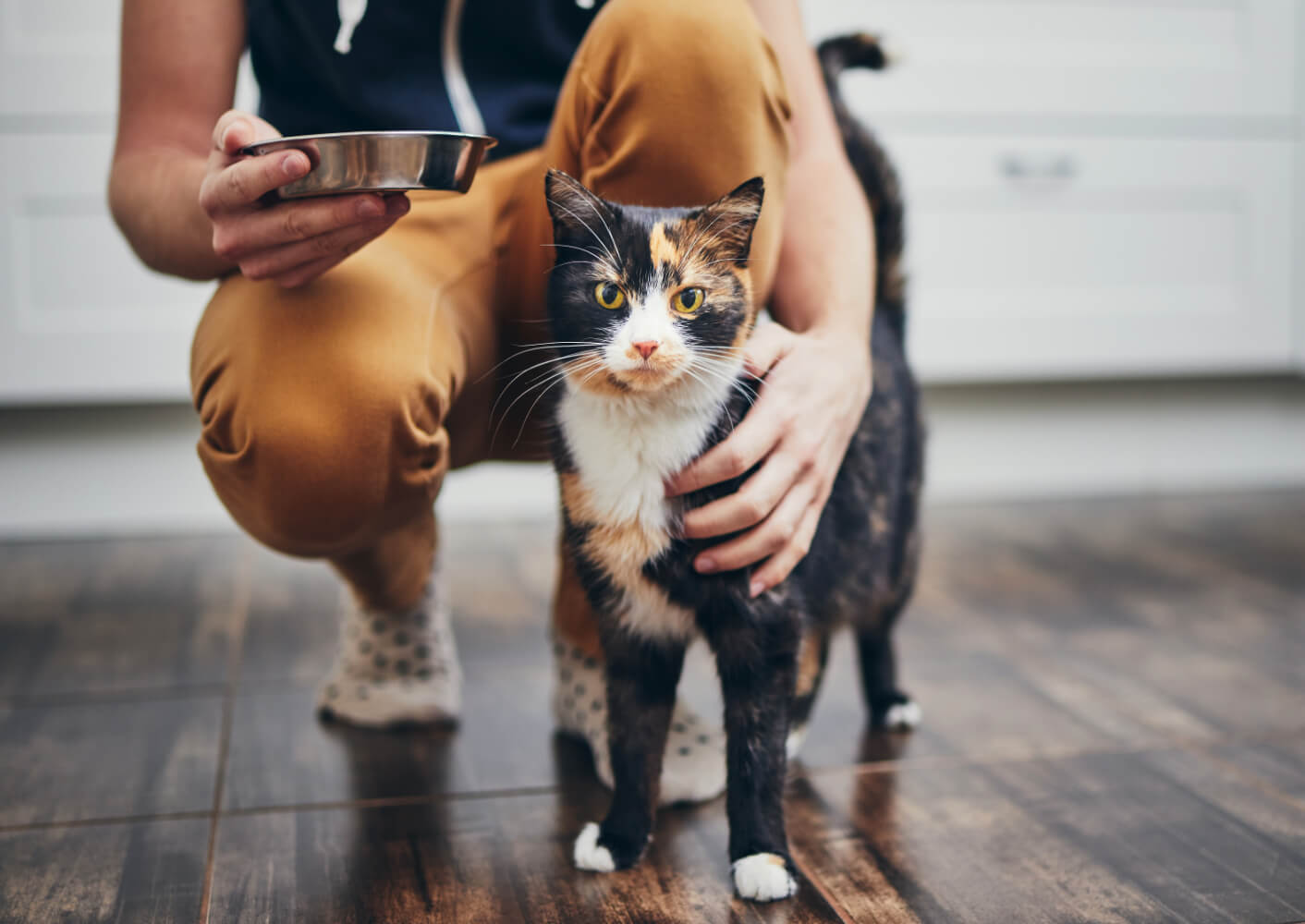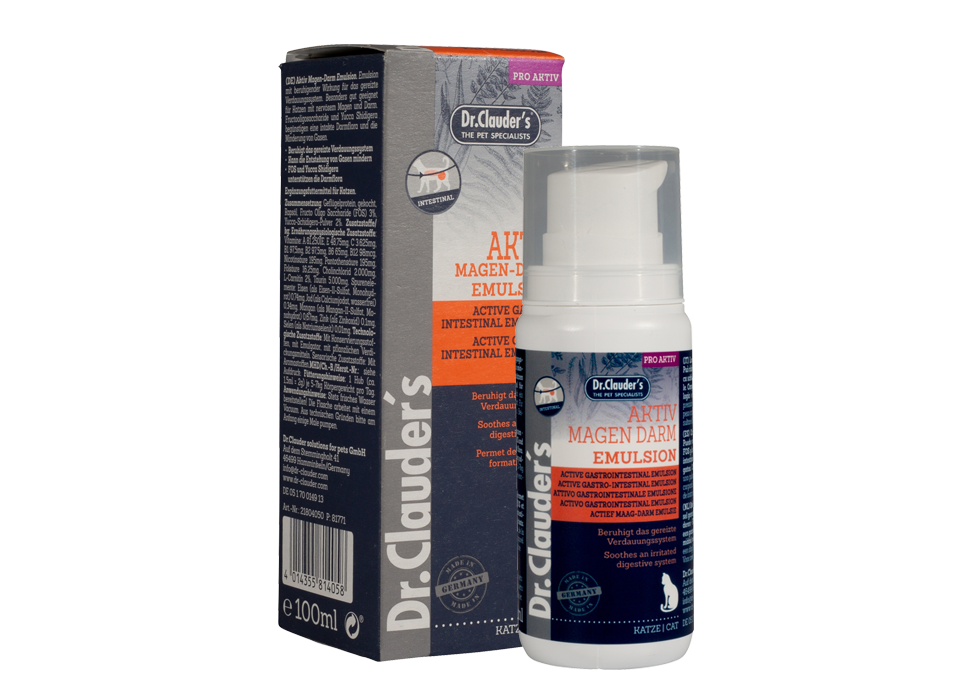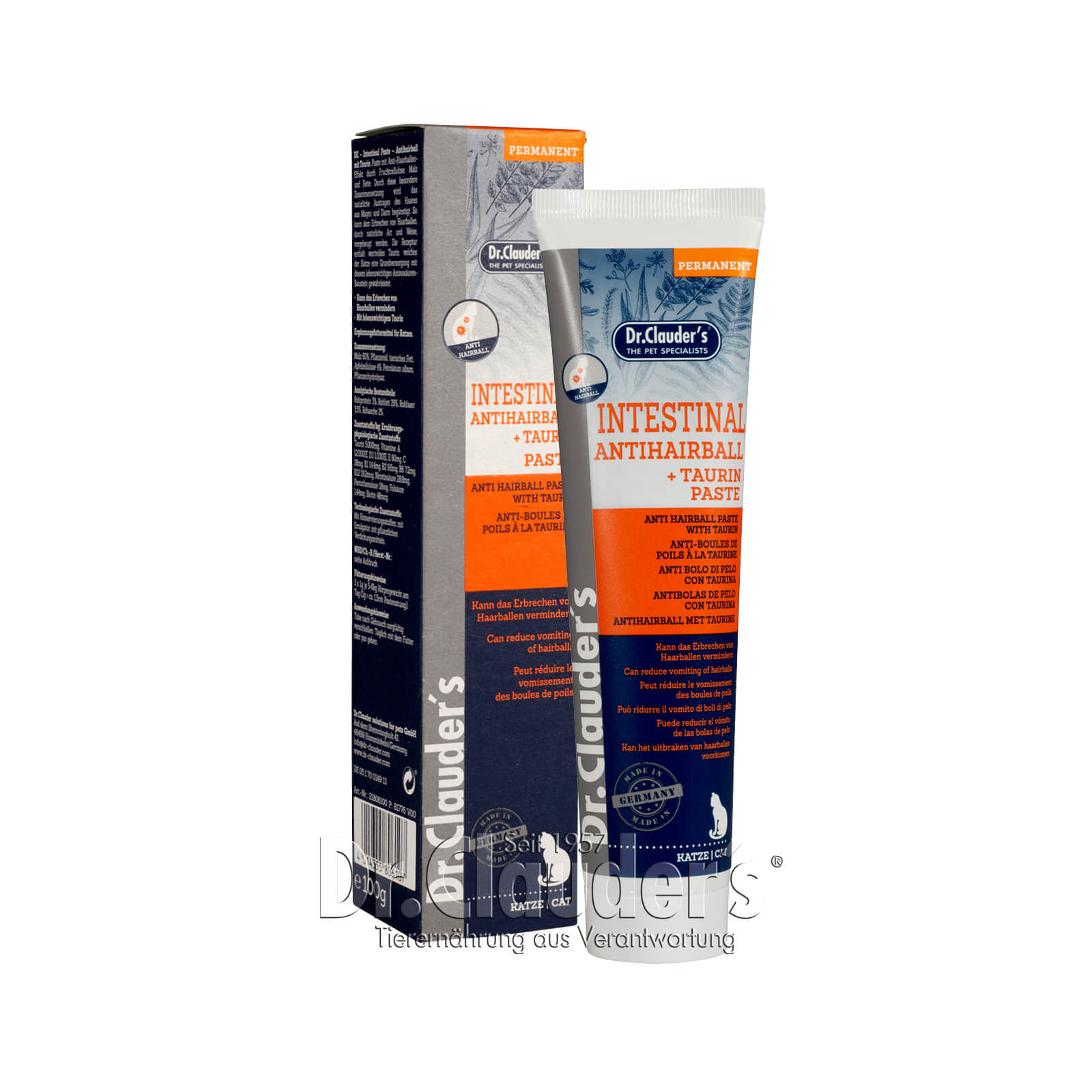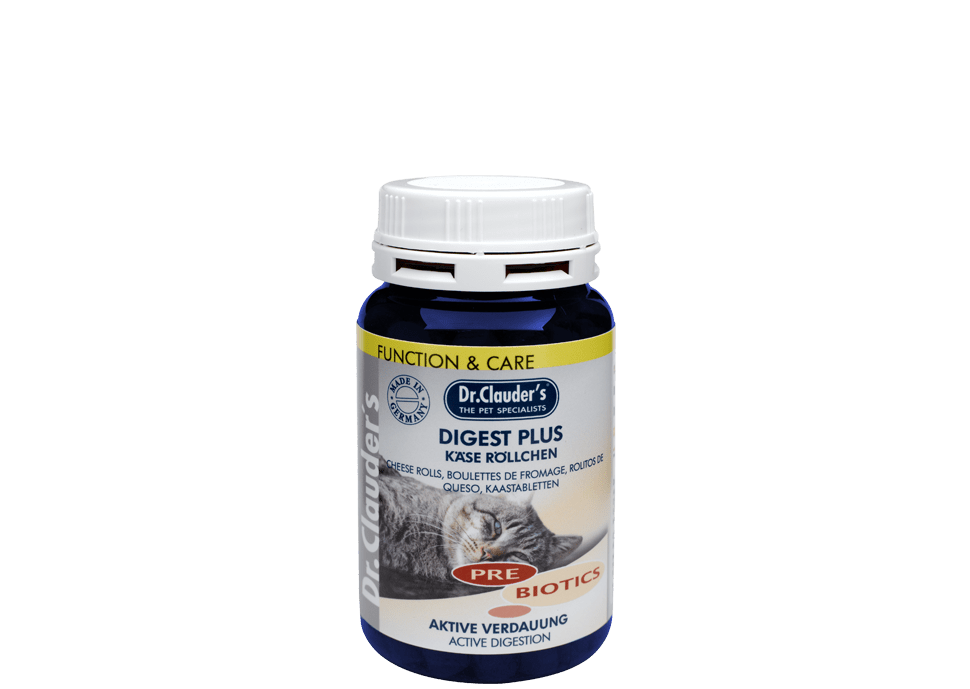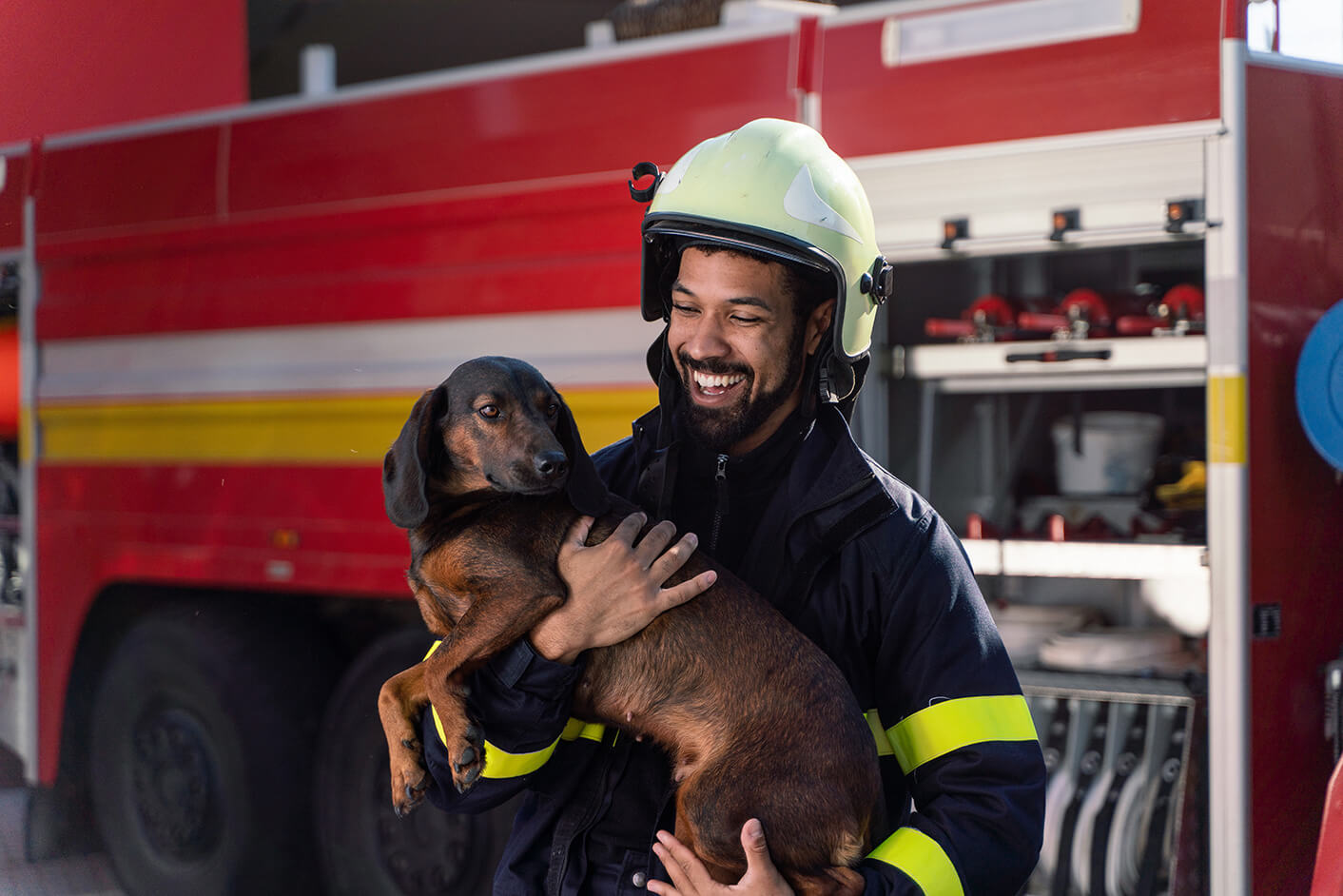Included in this article:
- Causes & Risks
- Stress factor
- Gastrointestinal diseases
- Treatment
- Points to note
- Product tips
Gastrointestinal problems in cats
The well-being of our velvet paws is close to our hearts - that's why we also deal with the less appetising aspects of living together: gastrointestinal complaints accompanied by vomiting and diarrhoea are not nice, but unfortunately not uncommon.
In most cases, it is quickly gotten over - but infections are not always harmless.
In this article, we present the warning signs that should prompt you to go to the veterinary clinic immediately. You will also learn more about the symptoms of gastrointestinal problems and how to give your pet relief.
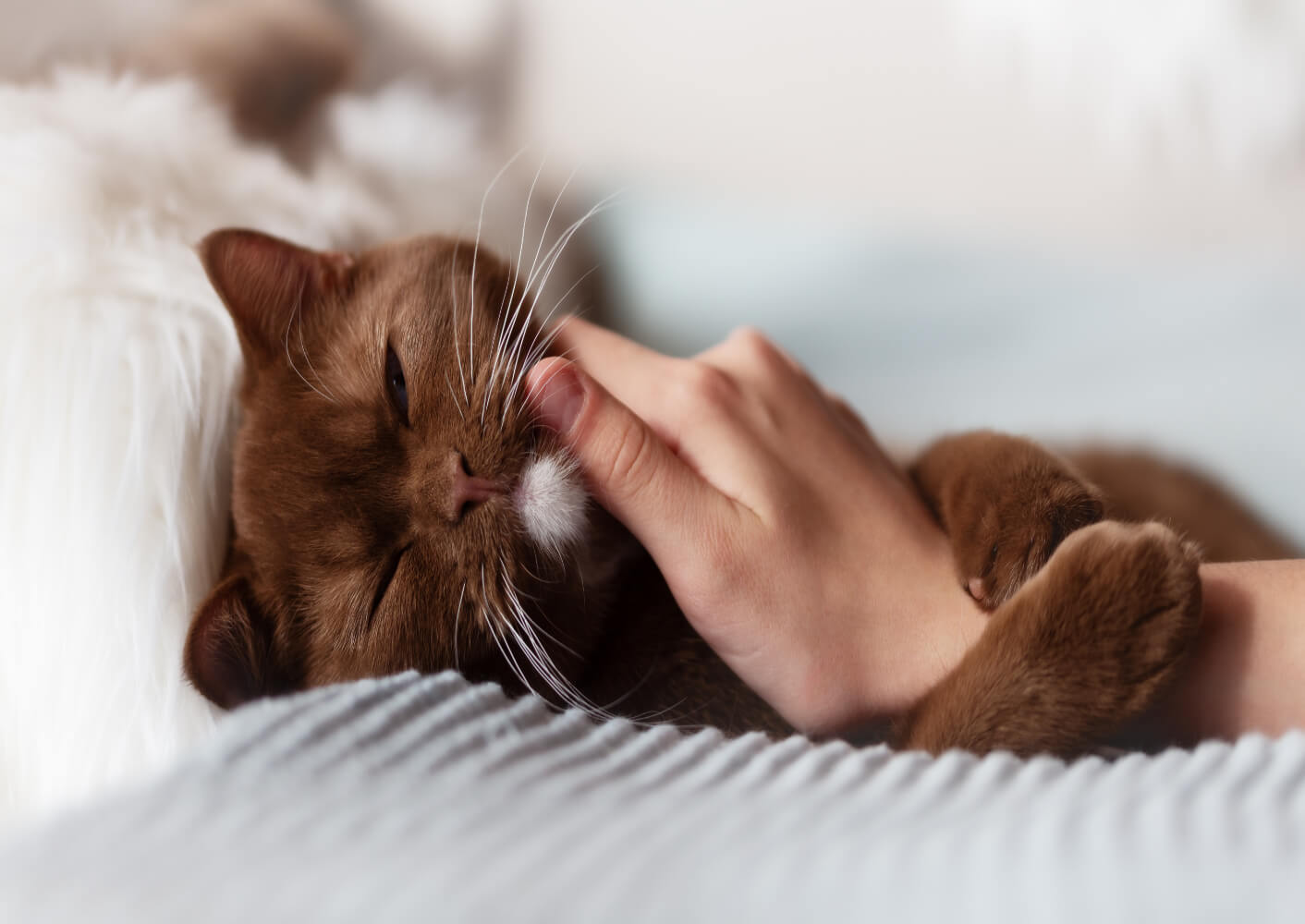
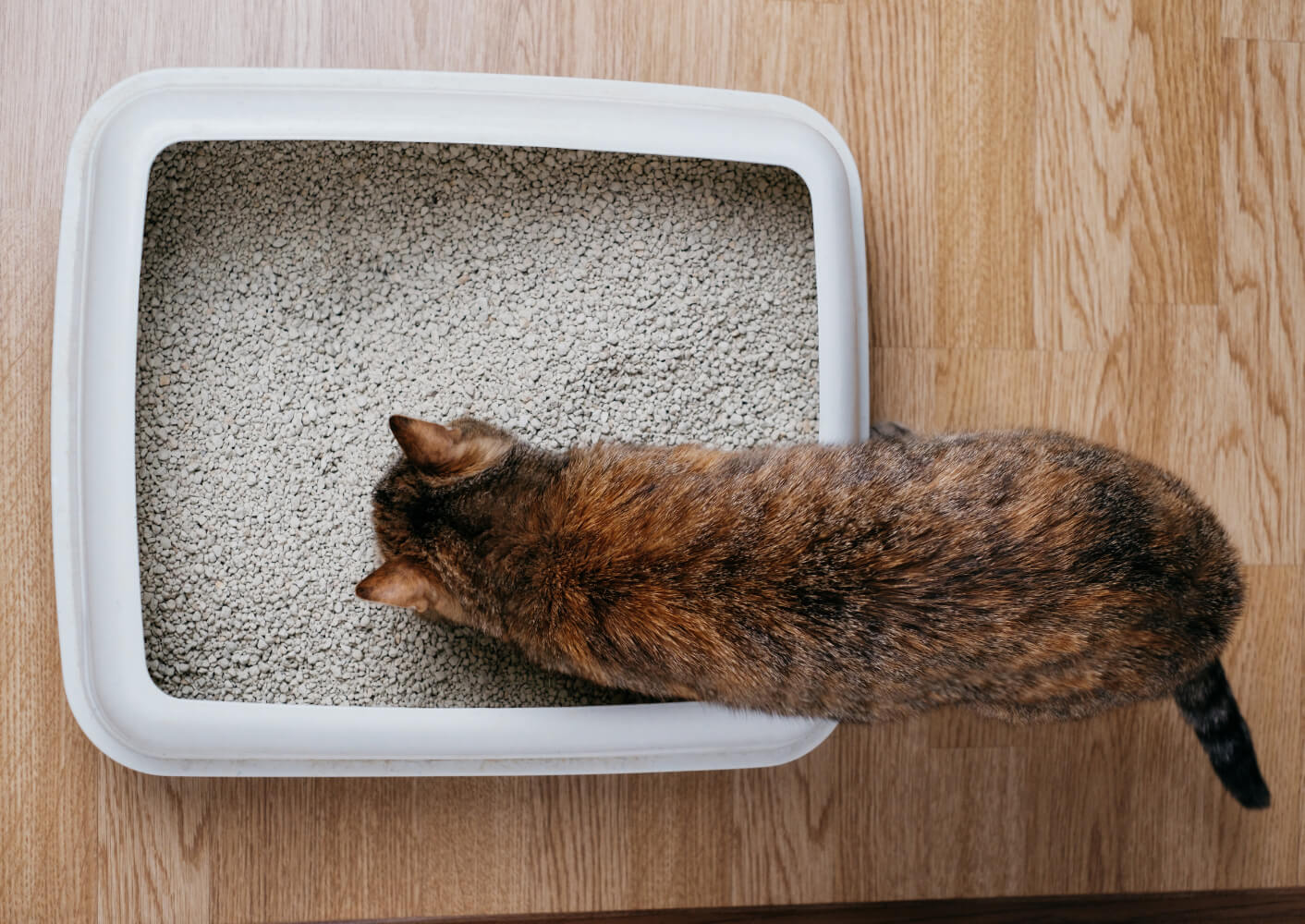
Causes and risk factors
Cats need privacy when doing their small and big business. However, gastrointestinal problems usually don't remain a secret for long and you will have to take a look at your cat's excretions when cleaning the litter tray at the latest. And this is also necessary, because if your cat is constantly struggling with digestive problems, a visit to the vet is necessary.
If the consistency of the faeces changes, it is not immediately called diarrhoea. However, it is a sign that your cat is trying to fight a problem in the gastrointestinal tract and expel it from the body.
Where do the gastrointestinal complaints come from?
- Spoiled food (wet food in the bowl starts to spoil after only 20 minutes).
- Unsuitable food / sudden change of food
- Intolerance / allergy
- Fatty snacks, leftovers
- Unpalatable prey animal or plant (free roamer)
- Food containing milk, sugar or starch
- Ingestion of foreign objects (e.g. toys)
- Side effects of medication
- Food that is too cold
- Trauma or stress
Keep a close eye on your cat and make sure it drinks enough fluids - especially if your cat suffers from diarrhoea. If symptoms last longer than 2 days or your cat's behaviour changes noticeably (lethargic, lack of appetite etc.), you should consult a vet.
Serious triggers can also be the cause of the symptoms: Despite regular worming, an infection with parasites is one of the most common causes of diarrhoea.
Other possible triggers:
- Chronic inflammatory bowel disease
- Viruses or bacteria
- Kidney or liver failure
- Poisoning
- Hyperthyroidism
- Tumours
Factor stress in cats
Cats react extremely sensitively to changes in their environment. Which factors trigger stress is individual for each animal. Therefore, it is important to recognise and eliminate possible stress factors. Recurring stress puts a strain on your cat's psyche and has a negative effect on its health - among other things, gastrointestinal problems can be the result.
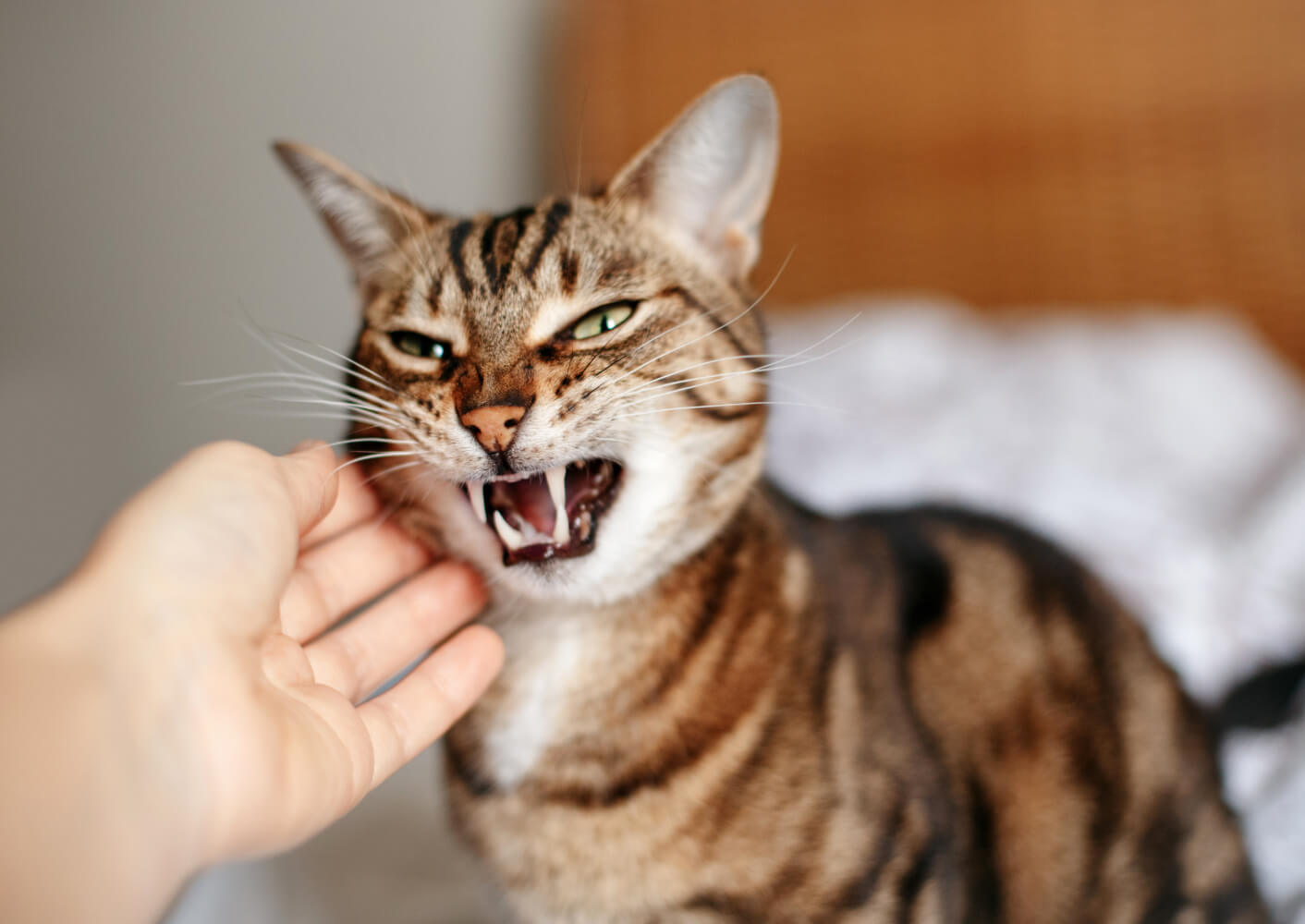
Typical stress triggers:
- Moving
- New flatmates
- Visit to the vet
- Noise
- Changes to the usual daily routine: Strange people, new food, new furniture, changes in territory.
Signs of stress:
- Loud meowing, hissing
- Crouched posture
- Constant grooming
- Hiding/escape
- Restlessness
- Aggressiveness
- Urinating/defecating outside the litter tray
Consequences of recurrent stress:
- Increased secretion of the hormone gastrin: stimulates stomach acid production and increases the risk of gastritis or stomach ulcers (symptoms: loss of appetite and vomiting).
- Number of leukocytes decreases under stress: susceptibility to infections increases (blood cells are responsible for the defence against pathogens)
What helps against stress?
In the best case, you have recognised and eliminated the stress triggers early on. But you can't always spare your pet the stress - sometimes he needs a vaccination or a visitor comes over. In such cases, it is important to stay calm and react attentively: Talk to your pet in a calming way, lovingly distract it from the stress trigger. Retreats also help cats to calm down.
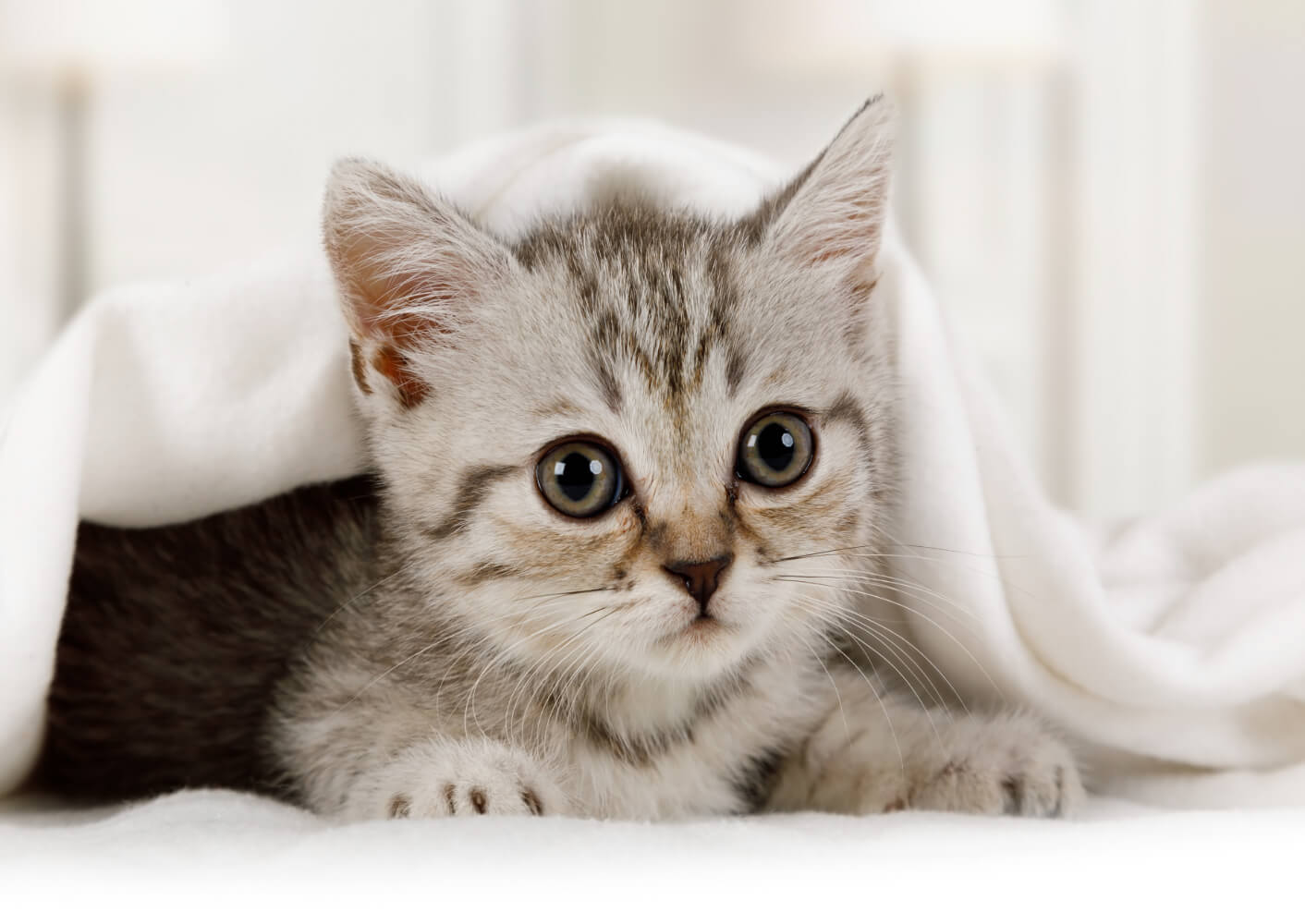
Gastrointestinal diseases in cats
The term "gastrointestinal infection" is not only used to describe bacterial infections or viral diseases of the gastrointestinal tract of cats. The term also refers to non-infectious diseases such as poisoning or food intolerance. However, it is always a question of a disturbed balance in the stomach and intestinal tract of the cat, which makes a thorough medical anamnesis necessary.
Examples of gastrointestinal disorders and possible triggers:
- Infectious intestinal diseases: Fungi, bacteria, viruses, parasites.
- Non-inflammatory intestinal diseases: Allergies, incorrect feeding, stress and pancreatic insufficiency.
- Gastritis (inflammation of the gastric mucosa): allergic reactions, bacteria, kidney disease, worm infestation, stress
- Enteritis or catarrhal inflammation of the intestine: feeding errors, stress.
Vomiting hairballs, although not pleasant, is completely harmless to cats. They pick up fur via the barbs of their tongues when grooming, which they later regurgitate.
Preventing gastrointestinal complaints: this is how it's done.
The be-all and end-all for a healthy, symptom-free gastro-intestinal tract for your cat is a species-appropriate and natural diet.
Also follow these tips:
- Less is more: Too large food portions put a strain on the stomach and provoke digestive problems. It is better to give several small portions throughout the day.
- You should prepare food changes well - if in doubt, consult your vet.
- Cat food: 80-85% meat, free from harmful fillers and additives.
- Cats are creatures of habit: Keep fixed meal times (for example, after getting up, after work and before going to bed).
- Sufficient water - especially when feeding dry food.
